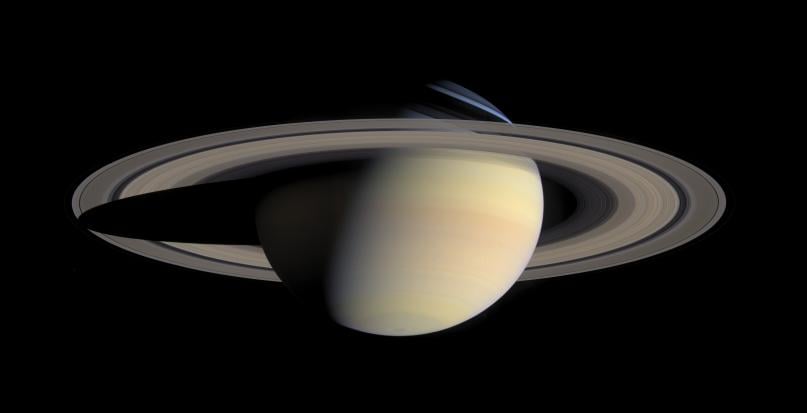Planet SATURN
A look at the origins, meaning and usage of the place name "SATURN". For word definitions see WordChecker belowBackground
Saturn is one of the eight planets in our solar system. Located beyond Jupiter, Saturn is the sixth planet from the Sun, at a distance of 1,426 billion kilometres, and the second largest with a diameter of 120,660 km. Saturn is probably best known for the spectacular, broad, flat rings that encircle it and extend out from its surface 14,000 km. It can be seen from Earth with the naked eye.
Pronunciation: /ˈsæt.ərn/
Origins, meaning and usage of the name
Before the invention of the telescope, Saturn was thought to be the outermost planet because it was the last planet anyone could see from Earth. The Romans named it after their god of agriculture and time, Saturn (Latin: Saturnus). To the Romans, Saturn was the slowest of the five planets they could see, and this may be why they named it after a god of time. In Roman mythology, Saturn was also the father of Jupiter.
The adjective from Saturn is Saturnian (capitalized as derived from a proper noun), as in: The spectacular Saturnian rings extend for 14,000 kilometres. Fictional inhabitants of Saturn are known as Saturnians. The planet Saturn has featured in various works of fiction. Saturn was the name for NASA’s rockets that powered the Apollo missions, ultimately to the Moon landings. The word Saturday is derived from the same Roman god as the planet Saturn (7 Days of the Week).

Above: In 2004 the Cassini space probe captured images of the “ringed planet” Saturn from a distance of some 6 million km. The images were later composed into this “most detailed, global natural color view of Saturn and its rings ever made” (NASA).
Example sentences:
- She explored Saturn using her father’s telescope.
- The spacecraft Voyagers 1 and 2 sent us pictures of Saturn and Venus.
Above: “Saturn, the Bringer of Old Age” (above) is the fifth movement of The Planets, written by the English composer Gustav Holst between 1914 and 1916. The movement’s slowly ticking clock and terrifying cacophony create an emotional experience that reminds us of Saturn’s connections with advancing time.
solar system (noun): our sun and the eight planets (and other bodies) that go around it
billion (noun): one thousand million (1,000,000,000)
naked eye (noun): unassisted vision; the eye without help from a telescope
the Romans (noun): people of the ancient civilization that was based on Rome, Italy some 2000 years ago
Latin (noun): the language spoken by the Romans
cacophony (noun): a harsh, discordant mixture of sounds